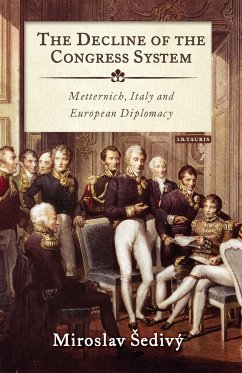Following the Congress of Vienna in 1815, the 'Congress System' became the primary instrument of diplomacy in Europe. So central was the Austrian Chancellor Metternich to the political-legal Congress System that the period has often been referred to as the 'Age of Metternich'. In this book, Miroslav Sedivý analyses Metternich's policy towards the pre-united Italian states from 1830 to 1848. With an emphasis on geopolitics and international law and drawing attention to the unsettled role of the Italian states within European diplomacy in the period, this book explains why the Italian peninsula never developed into the stable region that Metternich hoped to establish at the heart of the Congress System. Owing to the self-interested policies of some European Powers as well as the larger of the Italian states. Metternich proved unable to bring about 'the transformation of European politics' in Italy. Using a thorough analysis of the role that Italy played in the Congress System and based on extensive research in 18 European archives, this book explains why it was in Italy that the first war broke out after the end of the Napoleonic Wars, an event representing the first brutal blow to the Congress System.
Hinweis: Dieser Artikel kann nur an eine deutsche Lieferadresse ausgeliefert werden.
Hinweis: Dieser Artikel kann nur an eine deutsche Lieferadresse ausgeliefert werden.








